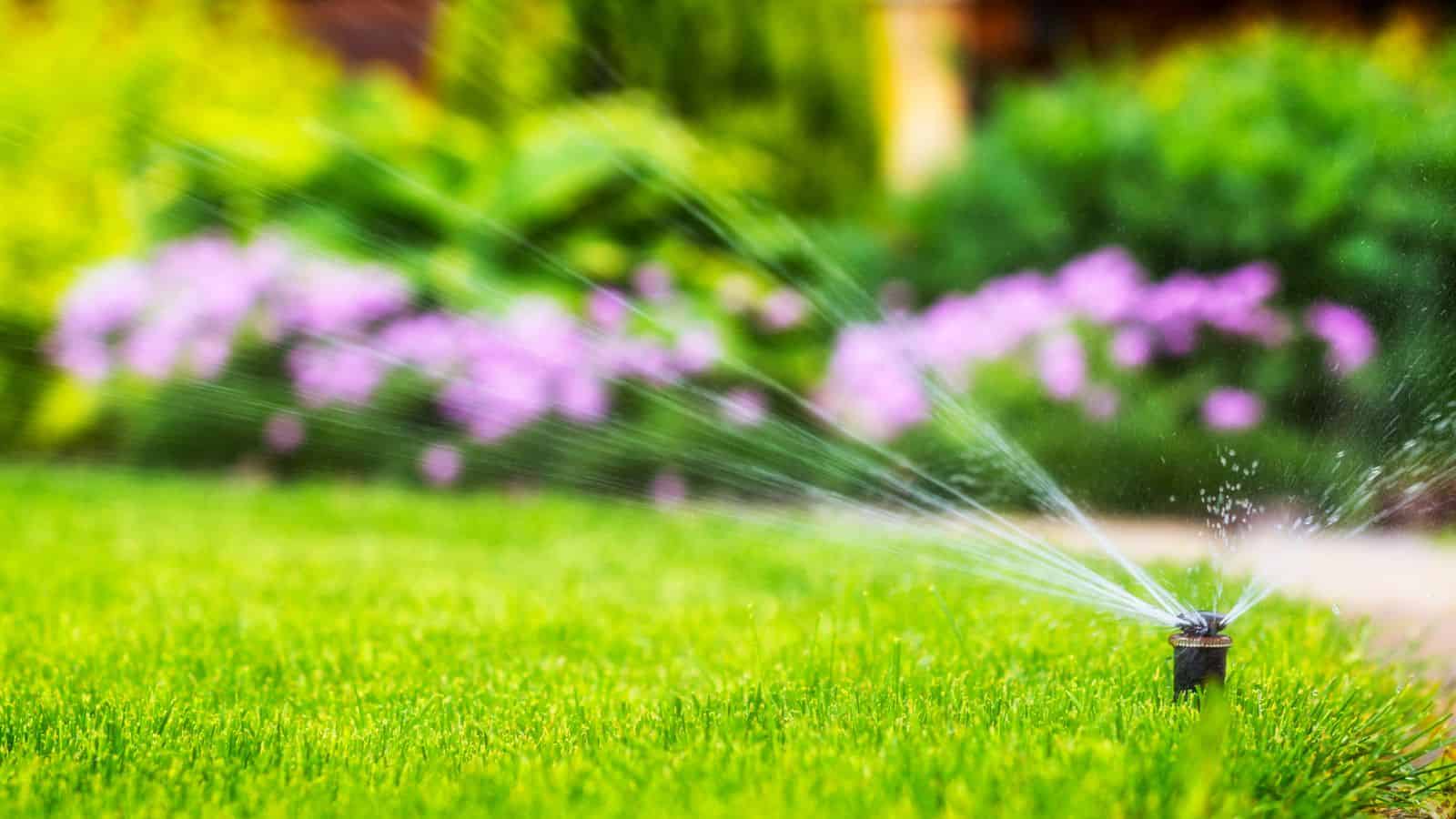Maintaining a beautiful lawn doesn’t have to come at the expense of the environment. Sustainable lawn care practices help conserve resources, reduce pollution, and promote a healthier ecosystem. Here are four tips for sustainable lawn care.

Mowing Techniques
Proper mowing techniques can make a significant difference in the health of your lawn and its environmental impact. One essential practice is to mow your lawn to the appropriate height for your grass type.
Taller grass blades shade the soil, reducing evaporation and promoting deeper root growth. This makes your lawn more drought-tolerant and reduces the need for frequent watering.]
Typically, keeping your grass at about 3 inches high is ideal for most types of grass.
Grasscycling is another sustainable mowing technique. It involves leaving grass clippings on the lawn after mowing. These clippings decompose quickly, returning valuable nutrients to the soil and reducing the need for chemical fertilizers.
To effectively grasscycle, use a mulching mower or simply leave the clippings on the lawn as you mow. This practice not only nourishes your lawn but also saves time and reduces waste.
Water Conservation
Water conservation is crucial for sustainable lawn care, especially in regions prone to drought. Efficient watering techniques ensure your lawn gets the moisture it needs without wasting water. Water your lawn deeply and infrequently to encourage deep root growth.
Early morning is the best time to water, as it reduces evaporation and allows the grass to dry before evening, preventing fungal diseases. Aim to provide about one inch of water per week, including rainfall.
Planting drought-tolerant grass varieties can also significantly reduce water usage. These grasses are well-adapted to local conditions and require less water to thrive.
Native grasses are often the best choice, as they are naturally resilient to the local climate.
By choosing drought-tolerant species, you can maintain a healthy lawn with minimal irrigation.
Organic Lawn Care
Adopting organic lawn care practices helps create a healthier environment for your lawn and reduces your reliance on synthetic chemicals.
Using natural fertilizers such as compost, manure, and fish emulsion provides essential nutrients without the harmful chemicals found in synthetic fertilizers.
Apply these organic fertilizers in the spring and fall for optimal growth and to maintain soil health.
Maintaining healthy soil is the foundation of sustainable lawn care. Regularly aerate your lawn to improve soil structure and promote root growth. Aeration allows water, air, and nutrients to penetrate the soil more effectively.
Additionally, adding organic matter, such as compost, can enhance soil fertility and moisture retention. Healthy soil supports robust grass growth and reduces the need for chemical interventions.
Integrated Pest Management
Integrated Pest Management (IPM) involves using a combination of methods to control pests in an environmentally friendly way.
Natural pest control strategies are a key component of IPM. Encourage beneficial insects, such as ladybugs and predatory beetles, that prey on lawn pests.
If necessary, use natural pesticides like neem oil or insecticidal soap, which are less harmful to the environment than synthetic chemicals.
Weed control is another critical aspect of IPM. Prevent weeds by maintaining a healthy, dense lawn that crowds out weed growth. Hand-pull weeds as they appear to prevent them from spreading. For spot treatments, use natural herbicides like vinegar.
Regular overseeding can also help fill in bare spots and reduce weed invasion by ensuring a thick, healthy lawn.
